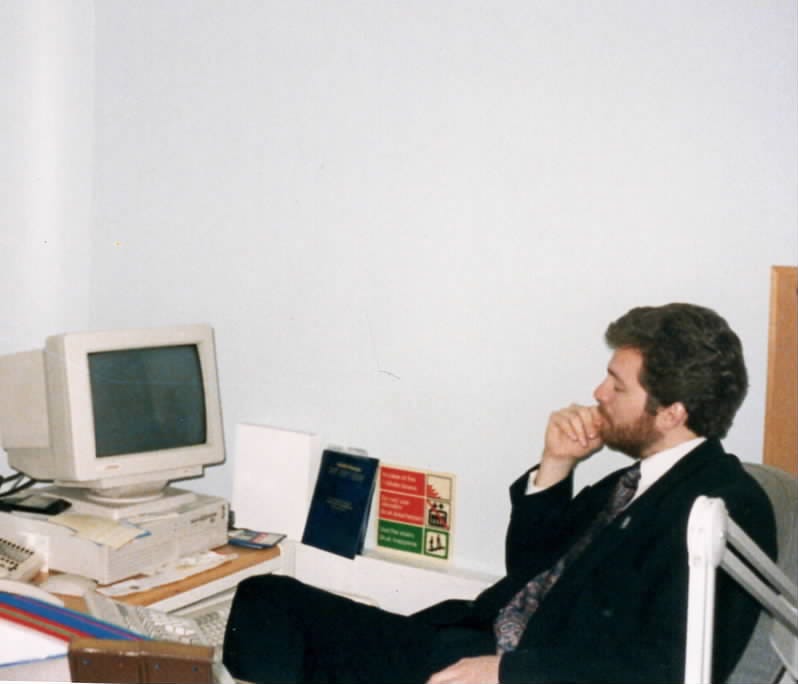“The art of advocacy is to lead you to my conclusion on your terms.”
If Adam Grant, publisher of
, had written his book, Give and Take, when he was about ten years old, he would have shortened my learning curve at the company that didn’t want to hire me.Instead, I took the route of trial and error, often enduring failure and frustration over why people weren’t interested enough in the most important part of the hotel business - safety and security.
Numbers are the most boring thing in the world so, obviously, I wouldn’t be as interested in spreadsheets as the CFO, but safety and security are about life and death.
Surely I could expect the CFO to spend most of his spare time engaging in threat analysis, risk assessments, and mitigation programmes?
If not the CFO, who was stuck with his nose in the numbers, then everyone else would be interested, right?
They weren’t.
No matter how hard I tried to explain how important it was, no matter how detailed I described what I thought they needed to know, I was met with the sound of silence.
Or, once, the sound of snoring.
I checked with my network of security professionals around the world and in them I found comfort. Everyone struggled with the same deaf and disinterested C-suite. Every security conference had a session on “How to make the C-Suite” listen. The sessions were well-attended but preaching to the converted doesn’t drive change, so at the next conference, there would be a new session, with a new speaker proclaiming to have the ultimate solution to clear the wax that was plugging C-suite ears.
Fortunately, in our company, security wasn’t important enough to be a full-time job…
In one of my roles as “Special Programmes Coordinator”, I was required to report to the CFO.
When the time came to fax my first monthly report to HQ in Brussels, (Security wasn’t important enough to be a well-paid expat position like the “real” corporate jobs were), I was nervous.
Nervous, because I had just taken on the job of managing the accounting of our rapidly growing loyalty programme although I knew nothing about accounting, and nervous because I knew the CFO was a stickler for accurate, precise, and on-time reporting.
Why was I given the job of managing the accounting of a programme with no knowledge of accounting, or the programme for that matter?
“You’re good at making things work.”, I was told when the job was handed to me. It wasn’t something I’d applied for or could choose to refuse. It was all defined in the line of my job description that said, “and perform other tasks as instructed by the company.”
Instructions received.
I prepared what I felt was a very snazzy spreadsheet full of numbers. On a cover page, I wrote down my most clear and concise explanation of the numbers. I read the cover several times and allowed myself to be impressed by how well I could explain something I was only beginning to faintly understand. I checked the numbers on the spreadsheet, but only to confirm they were the same ones that the system had spit out.
The fax machine whirred and made all the noises that would make young people today call 911 while fearing an alien invasion or the end of the world.
Ten minutes later the phone rang. It was the CFO.
“Thanks for your report.”, he said, and then he launched into a series of questions he needed me to answer.
I was perplexed because I could answer every question with one of the clear and concise phrasings I had painstakingly put together and included as page one of the two-page fax.
Finally, I had to ask.
“Didn’t you get both pages of my fax?”
I tried to sound innocent, apologetic, and understanding….
“Paul”, the CFO replied, “I’m the CFO. I only read numbers.”
There it was.
A full 20 years before Adam Grant wrote Give and Take, I started the process of learning that to help people understand, accept, and buy into your thought process, you need to speak their language.
In hotels, that meant I had to understand Business Development language to communicate why we should sign contracts for high-rises with only one fire escape, and it meant I had to understand that General Manager’s language was a mix of dialects perfectly pieced together to make guests, owners, and employees, who all have their own languages, happy.
If you’re not multilingual in business languages, you’ll always feel you come up short when the C-Suite doesn’t grasp the brilliance of your wonderful ideas.
When you learn to speak their languages, it’s amazing what great listeners they become.
Stay safe, Always Care

Please connect to learn more about how our experience and expertise can support you, your team, and your business.
If you need your bacon saved or know someone that has bacon that needs saving, please drop me a note. I have a great track record!
According to Wikipedia, it’s Adam Grant’s birthday this weekend. Wish him happy birthday by subscribing to Granted!
My birthday doesn’t come around until sometime next year. Nonetheless, I’m grateful to have you as part of the Always Care Community. Readership support is what keeps me going!



